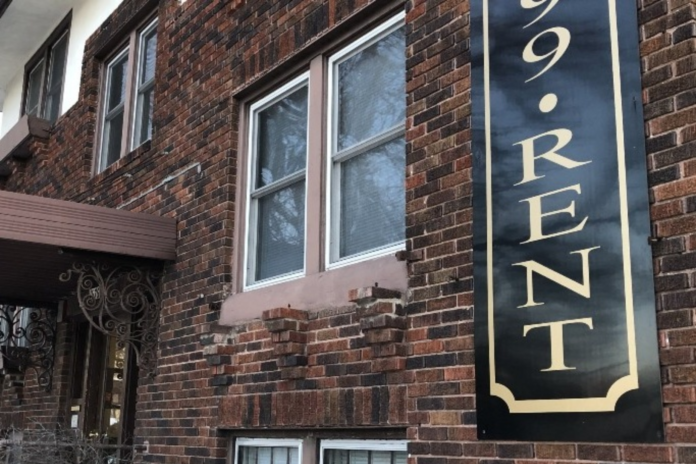Former Red Wing Mayor John Howe said that the regulations Minnesota Gov. Tim Walz placed on rent amid the coronavirus pandemic render landlords unable to evict potentially dangerous tenants.
Howe, a former state senator and former mayor of Red Wing, Minnesota, recently posted a video to Twitter that shows a rental unit he owns riddled with bullet holes. Alpha News spoke with Howe, who said that he strongly suspects the residents of the unit were shot at due to their involvement in the drug trade, but that Walz’s controls on landlords make it nearly impossible to kick problematic tenants out.
The current situation for landlords is so dire that Howe, who owns about 20 properties and has been in the real estate business for three decades, said he’s selling all of his rental units.
More photos.
Return control to property owners.
Saftey matters for everyone.
End the lawlessness.
2/2 pic.twitter.com/MkynBVU4Wc
— John Howe (@JohnHoweMN) September 19, 2020
In March, the governor signed an executive order that prevents landlords from expelling tenants during his COVID-19 peacetime emergency. The text of the order claims that “nothing in this executive order relieves a tenant’s obligation to pay rent.” However, Howe explained to Alpha News that landlords are left powerless to evict under the order, effectively allowing tenants to live rent-free for extended periods of time.
Howe is not alone in his frustration with the governor’s rules. Landlords across Minnesota report that their tenants have taken advantage of the executive order by claiming an inability to pay rent for all sorts of reasons virtually without consequence.
“I think a better way of handling [this], that Gov. Walz could have handled it [is] rather than saying ‘hey, no evictions,’ say ‘no evictions unless you’re 90 days late,’ [or some other increment of time],” Howe told Alpha News.
“At some point you have to let the property owner regain control of their property, and under the current governor’s orders I even had two tenants abandon my units … one went to Green Bay, one went to Michigan, and they still had stuff in the apartment and I legally just can’t go in there and take that stuff or re-rent the unit. I have to legally get an eviction notice to reclaim those properties,” he continued.
Howe then explained how difficult it is to evict renters in Minnesota. “There’s so many hoops to jump through,” he said, before describing a process that can take up to seven weeks to evict a troublesome or non-paying tenant.
“First you have to get an eviction order, they [the tenants] have to be 30 days late, you can’t take any partial payments,” he said.
“You have to have them [the tenants] served [the eviction notice], and then it takes two weeks to get into court and then the judge always gives them another week to get out, so now you’re at least four weeks behind, seven weeks behind,” Howe continued.
“Then you have to go back to court, get a writ of recovery … then you have to hire the sheriff at $85 an hour to go out and post it [the writ of recovery] for 24 hours, then if they’re [the tenants] still not gone then you have to hire the sheriff to physically remove them,” the former mayor concluded.
“It’s not only time consuming, it’s a financial drain.”
He said that after going through the lengthy process to evict an absent tenant, landlords then have to spend another month attending to their abandoned belongings.
“You have to store all their personal belongings for 30 days … you have to inventory them … and then you have to secure them for 30 days which usually means you’re not going to remove them to a storage shed. For my case it usually just means you can’t rent the unit out for another 30 days,” Howe said.
“I don’t think we’re a victim of coronavirus,” he concluded. “What we are is a victim of a very bad administrative peacetime emergency order.”

















